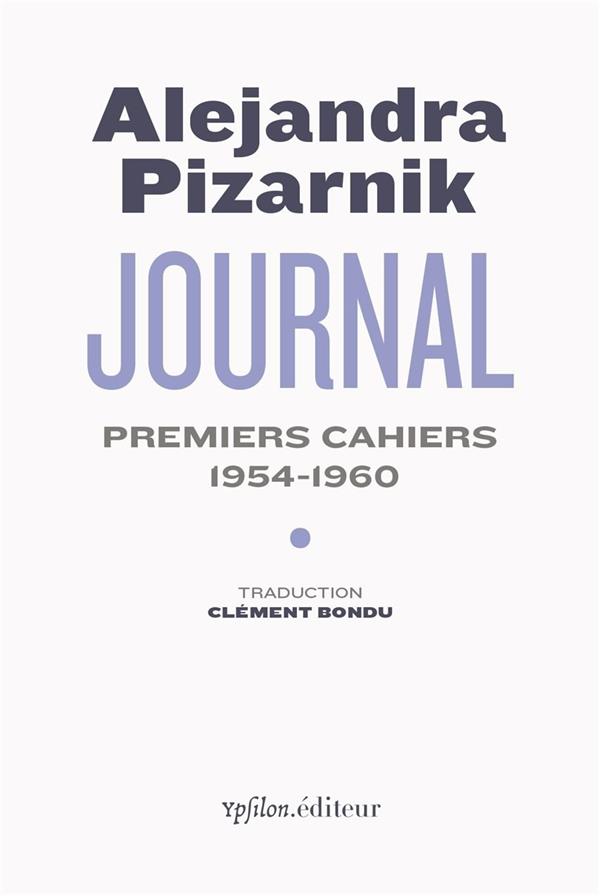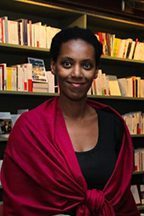Alejandra Pizarnik: Journal – Premiers Cahiers 1954-1960

Of Alejandra Pizarnik, Cesar Aira, her biographer and a remarkable writer himself, wrote that not only was she “ a great poet, she was the greatest, and the last.”
Born in 1936 in Buenos Aires (Argentina) to Jewish immigrants who spoke Yiddish at home, Alejandra made Spanish her language and most importantly her cause, her ultimate mission.
“Je suis toute entière un être littéraire” (I am an entirely literary being) one can read in this journal which she started when she was barely 18. More than a notebook, it is a fellow fighter, bearing witness to her struggle with solitude, abandonment, sexuality, estrangement, madness, and death. As Enrique Vila-Matas wrote :
“To the allure Pizarnik has, as a figure wrapped in mystery and an inexplicable personality, must be added the fact that, word by word, she “wrote the night,” and the reader who takes an interest in her will discover that this nocturnal writing, which had a great sense of risk, was born of the purest necessity, something seen in very few twentieth-century writers: an extreme lyric and a tragedy.”
Her journal walks us through Pizarnik’s tortuous, painful but also extremely precise journey through language, towards the elaboration of her voice. As Clément Bondu, her translator writes in his –excellent– postface:
“Le journal est cette chambre où l’espace et le temps sont ouverts, offerts à l’inconscience, à la magie, et à la sexualité. () C’est avec la langue, avec l’écriture qu’on pourra peut-être espérer répondre à ce manque qu’il y a là, quelque part en nous, celui que Pizarnik appelle la carencia : ce qui nous fait défaut et à sans doute à voir avec l’imaginaire, le fantasme, la mémoire, l’invisible, ou come dirait Marguerite Duras avec “la nuit.”*
This journal is a priceless gift for all admirers of the poet; and much more, a blessing to all those who are interested in the arrival of some of the most incandescent and beautiful writing to have ever been put down on paper.
Journal – Premiers Cahiers 1954-1960, Alejandra Pizarnik, traduction et postface de Clément Bondu, Ypsilon
Click here to purchase this book with us.
*“The journal is this bedroom where space and time are open, offered to the unconscious, magic, and sexuality. () It’s with language, writing that one will be able to maybe hope to respond to this lack that there is somewhere in us, that which Pizarnik calls carencia; what makes up our failings and doubtlessly has something to do with the imagination, fantasy, memory, the invisible, or like Marguerite Duras said, “with the night”.
If you are interested in more:
“Alejandra Pizarnik, choix de poèmes et d’extraits du journal” par Béatrice Léca
Ecrire c’est donner un sens à la souffrance…
No. 6 – Music & Literature
A Few Essential Words / Alberto Manguel An Introduction to Alejandra Pizarnik’s Diaries / Ana Becciú, trans. Cecilia Rossi A Selection from Diaries / Alejandra Pizarnik, trans. Cecilia Rossi A Selection of Prose / Alejandra Pizarnik, trans. Cecilia Rossi An Introduction to “The Lady Buccaneer of Pernambuco or Hilda the Polygraph” / Ana Becciú, trans.


